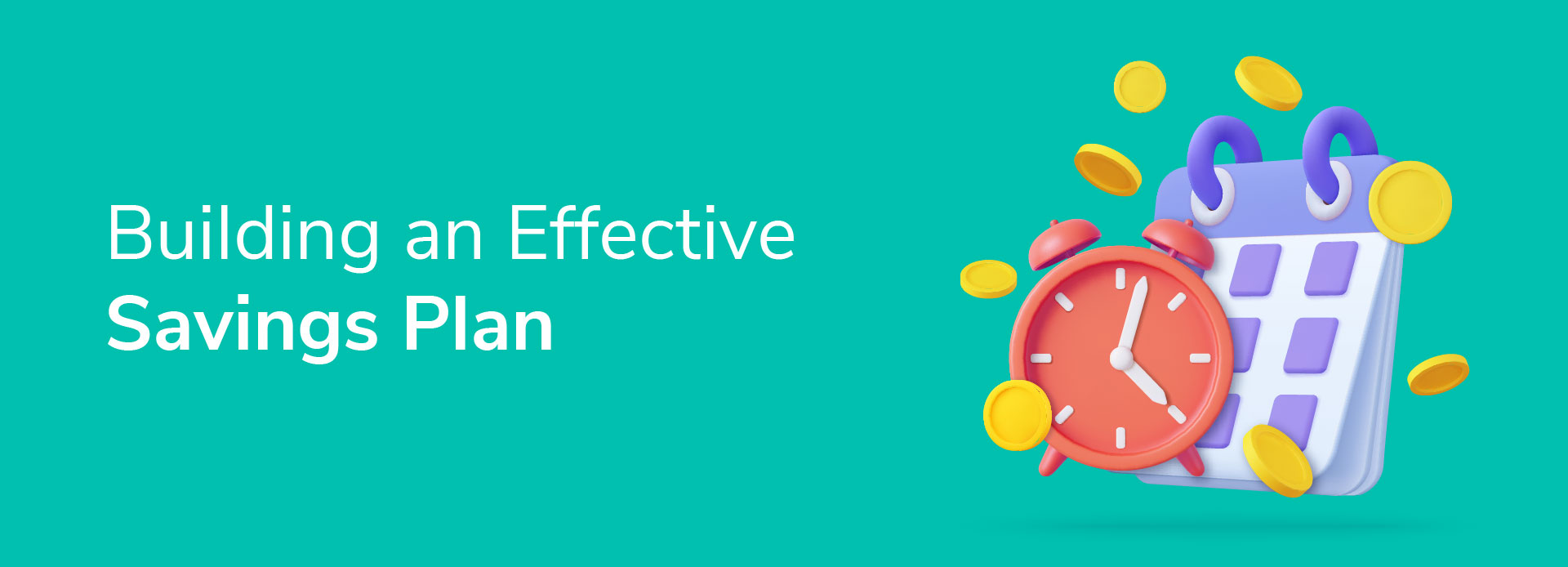
How to Build an Effective Savings Plan
26 February 2024 | By INDIE
There is one thing about life that is always constant - its ability to throw surprises at you when you least expect it! Events like sudden hospitalisation, house repairs or a job loss can put you in a tight spot. However, you can tackle them courageously and without stress if you have created a financial backup, i.e., savings. Savings are surplus funds kept aside regularly - in the form of cash, fixed deposits or liquid investments. Read this guide to learn how to save money!
Saving - Why Is It Important?
To build wealth and secure your future, it is crucial to cultivate the habit of saving. Saving holds significance for many reasons:
- It acts as a backup plan in times of emergency
- It offers a cushion during unforeseen events and helps you navigate through them with ease
- It helps you achieve your short-term, medium-term and long-term goals
- It fosters financial independence and stability, which are essential to living your life after retirement peacefully
Whether you are saving for your retirement, a big purchase, or your child’s education, the process involves an assessment of your goals, income, expenses and current financial situation. While doing so, it is important to address the fundamental question - how to save money effectively?
There are plenty of options to place your funds, such as investing in stocks, mutual funds, fixed deposits, etc. However, you can begin by opting for a savings account like the INDIE Savings Account. It can easily be opened online with minimum documentation. Explore the attractive savings account interest rates offered by IndusInd Bank and embark on your journey today!
How to Save Money and Build an Effective Savings Plan?
Listed below are a few straightforward steps on how to save money that will help you embark on your journey of savings and financial stability.
1. Goal Planning
The first step in knowing how to save money is planning your financial goals - you might want to save for an overseas vacation or purchase your dream car. It is important to have clarity on these short-term or long-term goals because:
- It helps in the proper allocation of resources to specific goals
- It helps you track your progress and modify your savings strategies
2. Budgeting
Once your goals have been defined, you must design a budget that is in sync with your financial goals. A budget is where you record your monthly income and expenses. If you have not got into the habit of budgeting, it is high time you do so, because budgeting -
- Gives you clarity regarding your income and expenses, helping you make wise decisions
- Helps in identifying expenses that can be reduced or eliminated
- Helps in prioritising your goals and allocating funds accordingly
- Promotes responsible management of finances
3. Emergency Fund
Unexpected emergencies like hospitalisation, job loss, family crises or legal issues require a huge sum of money and can wipe out your bank account in minutes. You must aim to have an emergency fund that can cover your living expenses for 3-6 months. In times of crisis, an emergency fund -
- Acts as a backup to cover unexpected expenses without the need to opt for high-interest loans
- Preserves your financial goals, and helps you handle any crisis stress-free
You could consider options like liquid funds as well as fixed deposits like IndusInd Bank’s INDIE Fixed Deposit to create your emergency fund.
4. Minimise Debts / Loans
A very important step in planning on how to save money is to have a clear idea of all the loans / debt availed. You must prioritise the payment of your debts in the order of high-interest debts to low-interest debts. Make sure you clear off all high-interest debts quickly as this frees up the interest component. This money can be directed towards savings. You can reduce your debts by -
- Using unexpected income, like a bonus, towards clearing your debt
- Automating your debt EMIs to ensure timely repayments
- Opting for debt consolidation
5. Minimise Expenses
Your budget will help you identify areas where you can cut expenses. For instance, if you use a data pack on your phone, and barely use the WiFi at home, you could get rid of the WiFi. A few simple ways of minimising your expenses would be -
- Limit restaurant visits and movies
- Always check for discounts or cashback on products you need to buy
- Clear your credit card bills on time to avoid penalties and interest
6. Wise Investments
When it comes to how to save money, you must park your money across different investment avenues. You could invest in equity and debt funds, mutual funds, fixed deposits, savings schemes like public provident funds, etc.
A few tips to note while investing -
- Be financially literate
- Get your health insurance when you are young
- Opt for a high-interest rate savings account
- Make sure you diversify your investment portfolio
- Conduct your research on every investment option
- Always review your investments periodically to ensure they align with your goals
Conclusion
Establishing an effective savings plan is vital to achieve your financial goals and safeguard your financial future. You can build a strong financial foundation by having clear financial goals, embracing the habit of budgeting, and staying disciplined. Stay well-informed about financial products, diversify your investment portfolio, and regularly assess all your investments. So, stop pondering on how to save money and take the first step to open online savings account today. Start your savings journey today!







